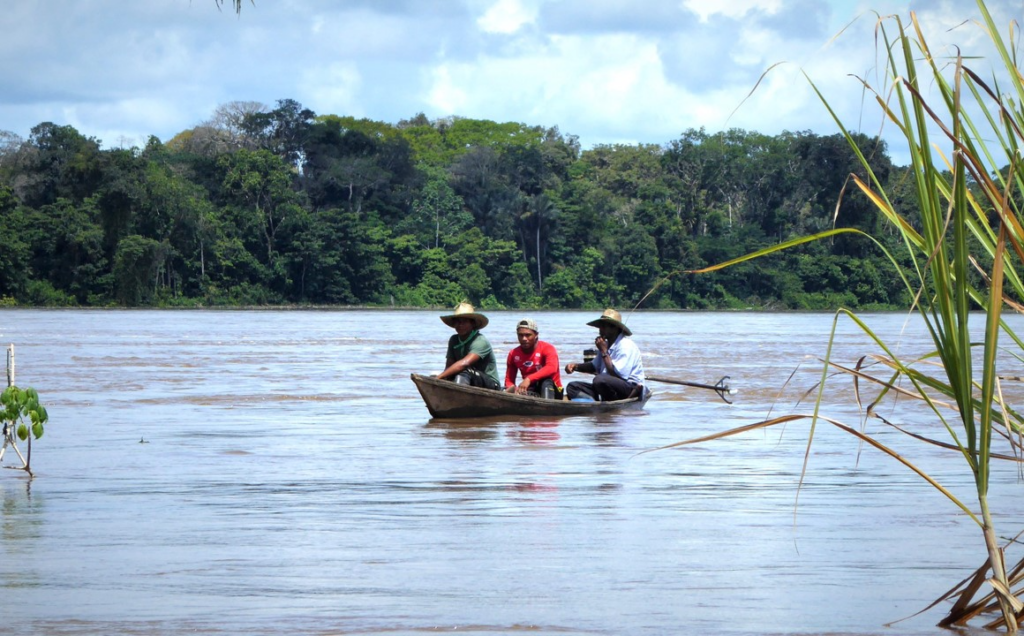Guest Author
In this age of globalization, international expansion is increasingly factored into the forward planning and growth estimates of ambitious companies. Yet many corporate leaders and business owners remain wary of investing in Latin America and the Caribbean because of obstacles historically associated with doing business in the region.
But to what extent should those risks be considered barriers to investment today?
Latin America is one of the fastest developing regions in the world, making it an enticing destination for foreign businesses. Yet challenges still remain for anyone interested in doing business in Latin America.
There are a few commonly mentioned obstacles to investment in the region, namely corruption, bureaucracy, language barriers, and funding availability. Considering the current economic environment and the role of local governments, let’s weigh each one of those potential risks with investing in Latin America:
Corruption
Latin America and the Caribbean is a region that has long been associated with having a corruption problem. In some countries in the region, it has permeated both the state and private sectors. The infamous and widely spread Odebrecht scandal has demonstrated that corruption has not gone away.
Yet corruption does not necessarily affect the region in a universal fashion, as countries like Chile, Costa Rica, and Uruguay have reported lower perceived levels of corruption than several European nations, according to Transparency International’s Corruption Perceptions Index 2019 (CPI).
Meanwhile, according to the International Monetary Fund (IMF), some of the countries in the region that have been historically most victimized by corruption, such as Honduras, have shown some progress in addressing the societal problem.
Moreover, leaders in the region have made abolishing corruption a priority over recent years.
In 2007, the Organization for Economic Operations and Development (OECD) created the Latin America and Caribbean Anti-Corruption Initiative to encourage sharing the best-practices for tackling the issue. A drive to combat corruption that swept through the region that began in 2018 only just stalled recently in the face of the major economic and social disruptions caused by the COVID-19 pandemic of 2020.
Bureaucratic hurdles
Doing business in Latin America has a reputation for involving a significant amount of administrative red tape. While efforts to deal with corruption have necessarily generated numerous additional checks and balances — especially with regards to banking and funding sources — in many other ways governments across the region have worked hard to streamline their processes and make life easier for businesses and investors.
Once again, it is difficult to discuss bureaucracy in Latin America in terms of it being a homogeneous aspect of commercial life around the region, because it can vary greatly between countries. Company formation in Brazil, for example, can take significantly longer than starting a business in Chile.
That is in part because Chile stands out along with the likes of Panama and Colombia as being particularly favorable towards business, investment, and free trade. As the Financial Times highlighted earlier this year, Colombia’s recent moves to cut red tape have paid dividends for entrepreneurs.
In countries where the governments tend to be less market-orientated, or in countries which simply have not yet implemented comprehensive reform of such processes, a higher burden of administration can be expected.
Yet even in those countries, there are options available to companies and investors who want to enter the market quicker than the normal administrative process might allow. For example, companies have the option of contracting a professional employer organization (known as a PEO) as a stop gap while going through the incorporation process.
Contracting staff through a PEO in Brazil, for example, could have your business moving in a couple of weeks rather than the months it could take to set up a company.
Language barrier
While English is spoken as a second language among business communities in Latin America and the Caribbean, it cannot always be assumed to be spoken to a high level. As such, a language barrier can pose a problem for investors from English-speaking countries in Spanish-, Portuguese-, French-, and Dutch-speaking countries in the region.
The issue is not purely limited to one of business-related communication, because having some grasp of the local language can give you some critical cultural insight that can also be extremely valuable in terms of building relations and doing business in the region.
The good news for those who do not speak a second language proficiently but who are keen to enter one the region’s markets is that in several countries the level of English is high. Argentina, Chile, Costa Rica, and Paraguay all appear among the top 40 countries in the Education First English Proficiency Index 2020.
Meanwhile, throughout the region there is a growing awareness of the importance of spoken English, not only in relation to professional and business dealings, but also thanks to the growth of outsourcing.
In 2015, Uruguay rolled out an ambitious government program to provide remote English lessons to students in schools that did not have a qualified English teacher on staff. This has allowed the rate of students graduating from primary school with at least lower-intermediate English proficiency to soar from 56 percent in 2014 to 80 percent in 2019.
Access to funding
Because of the risks associated with investing in Latin America, funding has not always been easy to come by in the past. Even today, venture capital is often less readily available than in other emerging market regions. However, that trend is definitely changing, and in 2019 Brazil was the fourth-largest recipient of foreign direct investment (FDI) globally.
The emergence of several countries in the region as hubs of technological innovation, as well as greater investor confidence in the region’s political stability, have undoubtedly contributed to a growing interest among investors in the region and a subsequent increase in available funding.
Latin America has seen a significant increase in venture capital investments, with the $4.6 billion (USD) invested in startups across the region in 2019 representing a 133 percent increase on the amount invested the previous year and a ten-fold increase on that invested just four years earlier.
International business heavyweights are getting in on the action, too, with Japanese corporate titan Softbank announcing in 2019 the launch of a $5 billion fund to support tech innovation in Latin America.
Nevertheless, funding does remain an issue, with the Global Entrepreneurship Monitor’s 2019 report highlighting how the reliance on a handful of venture capitalists in Chile is restricting the country from achieving its full potential. Yet, for potential investors able to offer or secure the sort of funding that is lacking, such circumstances can represent major opportunities.
Moreover, entrepreneurs have found innovative ways to deal with scarce funding, such as by working with venture builders.
Venture builders are business entities that focus on creating and developing ideas into fully operating business initiatives. Instead of investing money in startups and entrepreneurs, they use in-house resources and dollars to launch new companies under their parent company portfolio, generally developing multiple companies and counting on shared resources in the process.
Although working with a venture builder – also known as a company builder or venture studio – often means operating with less freedom, the financial stability and availability of resources on offer to entrepreneurs for doing so makes them an attractive option.
The takeaway
It would be unreasonable to cast Latin America and the Caribbean as a land of milk and honey for investors, because the region continues to confront challenges, especially in the face of the ongoing global pandemic.
However, many of the risks traditionally associated with the region are no longer the barriers to investment they once were. While corruption, bureaucracy, the language barrier, and funding availability do still affect commercial life in the region, considerable progress is being made.
For anyone who is looking at investing in Latin America, there are now more options available in terms of finding a local partner who can help you navigate and mitigate those risks.
Overall, as a region with a lot of growing yet to do, and in which many governments are making moves in the right direction to overcome the challenges they face and better prepare their populations for a more globalized world, the future is bright and commercial opportunities are abundant.
Craig Dempsey is Chief Executive and Co-founder of Biz Latin Hub, a company providing legal, accounting, and back-office services throughout Latin America.










